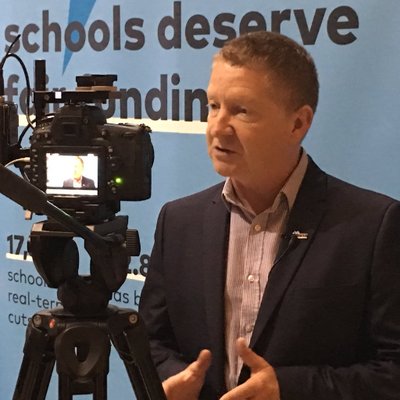Solving teacher recruitment requires a broad, flexible and planned approach.
Solving teacher recruitment requires a broad, flexible and planned approach.
At the Association of School and College Leaders’ (ASCL) annual conference earlier this year, Nick Gibb announced a strategy to drive recruitment and boost retention of teachers, working with teaching unions and professional bodies. ASCL’s survey of 322 headteachers in state secondary schools in England found that almost all of them (97 per cent) had used agency supply teachers in the past 12 months – and that 66 per cent did so to cover vacancies caused by difficulty recruiting permanent staff. Geoff Barton, ASCL’s general secretary, told the conference that there are a number of good supply agencies providing a valued service to schools, but he warned of the costs that can be involved.
The ‘State of Education’ survey found that teacher recruitment and retention was the third biggest challenge for school leaders – so what steps can schools take to be proactive, and attract the best candidates, without breaking the bank?
Many schools only think about recruitment when vacancies occur, but this approach can often cost more money, time and effort. As schools face rising costs and shrinking budgets, planning well into the future may be the solution to managing some of these challenges.
Instigating a system of “planned recruitment”, by forecasting likely staff turnover, along with possible changes to the curriculum, can help schools better understand the likelihood of needing to recruit for certain roles. Proactive recruiting is the key.
It is all about: Picking the right person….at the right time.
It sounds simple, but a recruitment process that ends in the hiring of a new teacher who is not a good fit for the school is not financially efficient. Furthermore, such a process could lead to low retention, unsettled pupils and the need to recruit again.
Schools should therefore focus on recruiting candidates who are a good fit.
Plan Staff Now is a simple to use online platform that allows schools and education staff to connect with each other in a direct, cost-effective and transparent way.
https://www.planstaffnow.co.uk/about
Whether it’s permanent, temporary or supply positions, schools will have direct contact to find, book and manage the teachers or support staff that meet their needs, efficiently, and all in one place. With the proactive recruiting that Plan Staff Now provides schools are able to check availability of teachers up to one year in advance. Schools can contact the teachers directly via the portal, phone, email, web or app. This enables those recruiting to build their own bank of preferred and trusted supply teachers.
For teachers looking for jobs, with everything in one place, they won’t have to update multiple recruitment agencies or job boards. They feel more valued and part of the team, as they will be employed directly by the school. Schools are more likely to turn temporary positions into permanent ones if they don’t have to pay fees.
The issue is not unique to the UK; teacher shortage is a global problem. A study led by Prof Kwame Akyeampong, Professor of International Education and Development at the University of Sussex reveals that: “The global teaching shortage crisis disproportionately impacts children from poor and marginalised backgrounds because they live in communities that do not attract trained and effective teachers. This situation is made worse because, globally, demand for trained teachers exceeds supply”.
The study calls for a broader approach to recruitment and to teacher quality.
“Costs should not be used as an excuse not to invest in recruiting, training and resourcing teachers to meet the learning needs of millions of disadvantaged children, because not doing so will cost even more in terms of loss in a country’s talent pool for social and economic development. Investing in teachers is investing in development.”
As Caroline Conlon, lecturer in Education and PGCE tutor at the UCL Institute of Education, recently said:
Education is about making a difference, working with young people, fostering their curiosity, showing them the possibilities that lie ahead. It’s really exciting. And if children meet one or two inspiring adults each day it can make such a difference for them. I have worked in education since 1986 and while I don’t think that we’re in a particularly great place at the moment, I have to believe that it will come back around. It has to.





